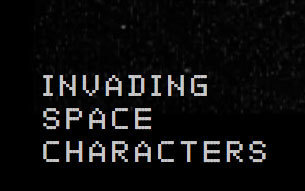Don't wanna be here? Send us removal request.
Quote
1. The dominant, continuing search for a noiseless channel has been – and will always be – no more than a regrettable, ill-fated dogma. Acknowledge that although the constant search for complete transparency brings newer, ‘better’ media, every one of these improved techniques will always possess their own inherent fingerprints of imperfection.
Rosa Menkman, Glitch Studies Manifesto
1 note
·
View note
Link
1 note
·
View note
Link
0 notes
Link
0 notes
Link
0 notes
Text
Der Fehler als Kunstform und Ästhetik - Glitch Feminism
"In a society that conditions the public to find discomfort or outright fear in the errors and malfunctions of our socio-cultural mechanics—illicitly and implicitly encouraging an ethos of “Don’t rock the boat!”—a “glitch” becomes an apt metonym. Glitch Feminism, however, embraces the causality of “error”, and turns the gloomy implication of glitch on its ear by acknowledging that an error in a social system that has already been disturbed by economic, racial, social, sexual, and cultural stratification and the imperialist wrecking-ball of globalization—processes that continue to enact violence on all bodies—may not, in fact, be an error at all, but rather a much-needed erratum. This glitch is a correction to the “machine”, and, in turn, a positive departure." (L. Russell, The Society Pages, 2013)
0 notes
Link
ein “klassisches” Beispiel von netzbasierter Kunst 1999 (Urheber: Netochka Nezvanova)
0 notes
Photo

http://invading-space-characters.verasebert.com/
Javascript + Storytelling + Typografie + Gaming
0 notes
Link
0 notes
Text
Coding Art / Medienkunst als Paradox
Code als funktionale Beschreibung und Handlungsanweisung -- Coding als spielerisches Tun und Selbstzweck
Code als Sprache? -- doppelte Performativität von Programmiersprachen
“unsichtbarer” Code? -- Kunst macht Dinge angreifbar, hörbar, sichtbar
Codierung: verschlüsseln - entschlüsseln
Coding Art -- Medienkunst: kritische Reflexion über und durch Medien, “aus dem Abstand und gleichzeitig mittendrin”
“Wem gehört ein Algorithmus?”: kollektive Autor*innenschaft -- Werkgedanke der Kunst
0 notes
Link
Eine Sonifizierung des Linux-Quellcodes (2003)
neu aufgelegt: https://cba.fro.at/463206
0 notes
Quote
[The ability to code] is similar to what scholar Michael Mates describes as ‘procedural literacy’, which is to connect social and cultural issues with coding through theoretical and aesthetic considerations. In particular, how “the culturally-embedded practices of human meaning-making and technically-mediated processes” are intertwined.
Shelley Knotts, Winnie Soon, Suzy O’Hara
0 notes
Link
“As (Zadie) Plant tells it in Zeroes and Ones; micro-bacterial mats wove the world, and still weave their way into women’s egg, and not into male sperm (there is/might be a Mitochondrial Eve). These ‘weavers’ become Freud’s ‘weaving women’--weaving women who make connectionswith machines, for instance in the industrial revolution,when male weaving is taken over by women. Slightly later,the inter-twined history of the Jaquard Loom, which usedpunch cards, and later electronic software coding, comes tostand ‘as proof’ of the importation of ‘the feminine’ into the supposedly sterile spaces of the machines. Which still leaves unanswered the ques-tion of what makes weaving,now ‘secreted’ within the digital, a female techology? Apartfrom the fact Freud certified it so? Weaving, for Plant, is about technologies and practiceswhich cannot be explained in terms of domination and control. Weaving--women working with information techno-logies--can then also be understood as in some sense a subterranean weaving against; an inevitable conspiracy ‘inprocess’ not in consciousness, if you like.“
(Caroline Bassett, in: A Manifesto Against Manifestos” - aus: next cyberfeminist international Reader 1999)
0 notes
